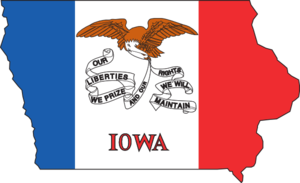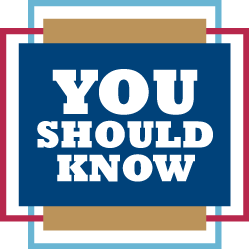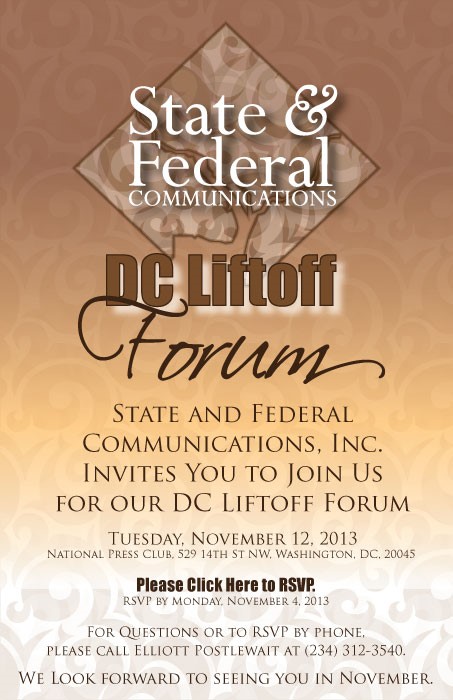May 16, 2014 •
Discover a Great Compliance Group on LinkedIn!
If you are a government relations professional who is interested in the latest news on compliance, we encourage you to join our Government Relations Compliance LinkedIn Group! You can discover what colleagues are talking about, and how they are solving […]
If you are a government relations professional who is interested in the latest news on compliance, we encourage you to join our Government Relations Compliance LinkedIn Group!
You can discover what colleagues are talking about, and how they are solving the challenges in complying with government rules and regulations for lobbying, grassroots lobbying, political contributions, and procurement. Take a look and join the conversation!
November 25, 2013 •
Iowa Ethics Board Publishes New Advisory Opinion
The ethics board in Iowa issued an advisory opinion allowing political candidates in the state to use campaign funds to attend a presidential inauguration. The board’s reasoning for its decision centered around the value to a candidate’s campaign of attending […]
 The ethics board in Iowa issued an advisory opinion allowing political candidates in the state to use campaign funds to attend a presidential inauguration.
The ethics board in Iowa issued an advisory opinion allowing political candidates in the state to use campaign funds to attend a presidential inauguration.
The board’s reasoning for its decision centered around the value to a candidate’s campaign of attending an inauguration event.
Under the opinion, a campaign committee can pay for the candidate’s travel and lodging, but cannot pay such expenses for anyone else.
November 8, 2013 •
New Federal Rules for Contractorsʹ Employment of Veterans and Persons with Disabilities
Beginning in March 2014, contractors with the federal government will have additional disclosure requirements concerning the hiring and employment of veterans and individuals with disabilities. One regulation change sets up a hiring goal for individuals with disabilities. The goal is […]
 Beginning in March 2014, contractors with the federal government will have additional disclosure requirements concerning the hiring and employment of veterans and individuals with disabilities.
Beginning in March 2014, contractors with the federal government will have additional disclosure requirements concerning the hiring and employment of veterans and individuals with disabilities.
One regulation change sets up a hiring goal for individuals with disabilities. The goal is for federal contractors and subcontractors to have seven percent of each job group in their workforce staffed with qualified individuals with disabilities, according to the U.S. Labor Department press release released August 27, 2013.
The Labor Department identifies the seven percent goal as an “aspirational utilization goal” and states “the goal is not a quota.” The rule also specifies actions vendors must take in the areas of recruitment, training, record keeping, and policy dissemination. The U.S. Labor Department identifies these rules as being similar to those currently required to promote workplace equality for women and minorities.
Additionally, regulations concerning the Vietnam Era Veterans’ Readjustment Assistance Act have been amended to include hiring benchmarks, data collection, and access to a contractor’s documentation related to compliance by the Office of Federal Contract Compliance Programs. According to the Labor Department’s notice of the program, contractors will utilize one of two benchmark methods: they can use a benchmark equal to the national percentage of veterans in the civilian labor force, or they may establish their own benchmarks using data from the Bureau of Labor Statistics, data from the Veterans’ Employment and Training Service/Employment and Training Administration, and other factors reflecting a contractor’s hiring circumstances. When listing job openings, contractors must invite applicants to self-identify as protected veterans at both the pre-offer and post-offer phases of the application process. Sample invitations to self-identify will be provided by the Labor Department.
Contractors must document and annually update quantitative comparisons revealing the number of people with disabilities and veterans applying for jobs and the number hired. Contractors must then maintain the information for three years.
November 7, 2013 •
Our Expertise Available to You at the DC Liftoff Forum!
State and Federal Communications is hosting a launch forum on November 12th and November 13th at the National Press Club in Washington, DC. If you are interested in learning more about our site from the folks who have put it […]
State and Federal Communications is hosting a launch forum on November 12th and November 13th at the National Press Club in Washington, DC.
If you are interested in learning more about our site from the folks who have put it all together, please give Elliott Postlewait a call at 330-761-9960 or e-mail him at epostlewait@stateandfed.com and set up a time for the program. We welcome you and your staff to our program.
Click here or on the graphic below to register online.

September 30, 2013 •
PLI’s Corporate Political Activities 2013
September 31 – October 1, 2013
 As a part of our unrivaled commitment to government relations compliance expertise, we are attending the Practising Law Institute’s Seminar, Corporate Political Activities 2013: Complying With Campaign Finance, Lobbying and Ethics Laws. Elizabeth Bartz, president and CEO of State and Federal Communications, Research Manager John Cozine, Federal Compliance Associate Rebecca South, and Research Associates Jen Zona and Michael Beckett are in Washington, D.C. this week for the event.
As a part of our unrivaled commitment to government relations compliance expertise, we are attending the Practising Law Institute’s Seminar, Corporate Political Activities 2013: Complying With Campaign Finance, Lobbying and Ethics Laws. Elizabeth Bartz, president and CEO of State and Federal Communications, Research Manager John Cozine, Federal Compliance Associate Rebecca South, and Research Associates Jen Zona and Michael Beckett are in Washington, D.C. this week for the event.
The full schedule includes coverage of issues such as federal and state lobbying laws, gift laws, and corporate political contributions. PLI has gathered first-rate presenters such as the Ellen Weintraub, Donald McGahn II, and Ann Ravel of the Federal Election Commission, as well as many others from state ethics agencies and corporate compliance.
Why are we taking the time to attend PLI’s Corporate Political Activities 2013?
As their website states: “Lobbying, campaign finance and ethics rules in Washington, and in every state, are changing, and new court cases are affecting lobbyists, corporations, associations, and unions. Compliance with federal, state and local laws is more complex than ever.”
Compliance is more complex than ever – and we are making sure we have it covered.
August 24, 2011 •
Our Online Executive Source Guides
Our Online Executive Source Guides give you everything you need for your compliance work in one place!
State and Federal Communications is the most trusted source in the nation for comprehensive, accurate, and timely compliance information lobbying laws, political contributions, procurement lobbying, and Canadian Compliance for U.S. Companies.
Our Executive Source Guides cover every important jurisdiction – federal, all 50 states, and more than 200 municipalities. We cover Canada too!
January 6, 2011 •
Ask The Experts – Beyond Registration, What Are the Requirements?
Here is your chance to “Ask the Experts” at State and Federal Communications, Inc.
 Q. Once I complete my lobbyist registration, what other obligations do I have in my state?
Q. Once I complete my lobbyist registration, what other obligations do I have in my state?
A. Filing lobbyist and/or principal disclosure reports is the bare minimum requirement in many states. In addition, you may be required to obtain an ID badge. Some states require mandatory lobbyist training on a regular basis. Most often, this can be done online. To date, the states requiring this are: Alaska, California, Illinois, Louisiana, Maryland, Massachusetts, Tennessee, Utah, and West Virginia.
Many states have different gift law limitations for lobbyists. For example, in Texas lobbyists are permitted to give gifts of $500 or less, while public servants may accept non-cash item of less than $50 from non-lobbyists.
In addition to reporting requirements, states may require pre- or post-notification to officials when an expenditure has been made on his/her behalf which is disclosed on a lobbying report. In Illinois, a lobbyist who makes an expenditure on behalf of an official must inform him/her, in writing, at the time the expenditure.
We are always available to answer questions from clients that are specific to your needs, and we encourage you to continue to call or e-mail us with questions about your particular company or organization. As always, we will confidentially and directly provide answers or information you need. Our replies to your questions are not legal advice. Instead, these replies represent our analysis of laws, rules, and regulations.
Amber Fish Linke is the Compliance Manager for State and Federal Communications, Inc.
January 6, 2011 •
2011 Is Here
It’s not too late to consider your compliance obligations for the upcoming year!

This brings up an important point: it is crucial that you understand what activities comprise lobbying in the jurisdiction. A lobbyist may meet the definition of “lobbyist” before contact is even made with an official. And do not forget that once registered, you will have ongoing reporting requirements. Illinois and Georgia, in particular, will have more frequent reporting than in past years. (more…)
August 12, 2010 •
Nola Werren at CESSE
State and Federal Communications, Inc. was represented at organization’s annual meeting.

The objective of CESSE is to advance, in the public interest, the arts and sciences of the management of engineering and scientific societies. Essentially, CESSE is an “association of associations”….and therein lie the unique compliance challenges when it comes to government relations and grassroots activity.
I was invited to speak to those members attending the conference’s general management and public affairs program tracks. Not only did this include those individuals working in the company’s public affairs department, but also its senior executives.
At the federal level, the biggest concern for the group was compliance with the Lobbying Disclosure Act of 1995 [LDA], as amended by the Honest Leadership and Open Government Act of 2007 [HLOGA], along with federal lobbying restrictions by nonprofit organizations. In particular, I addressed the permissible monetary thresholds for lobbying expenditures by a 501(c)(3) nonprofit organization when making an election under Internal Revenue Code Section 501(h). Group discussion included questions regarding the difference between direct and grassroots communication, both at the state and federal level. Finally, no discussion about compliance would be complete without addressing the ethical disclosure obligations that accompany the vast array of state and federal gift laws.
Although no ninety minute presentation could ever include an in-depth, detailed discussion of state and federal lobbying regulations, the CESSE group walked away with a very comprehensive and practical overview. I’d like to take this opportunity to wish CESSE all the best for its 2011 annual meeting in Vancouver!
Photo of Nola Werren and Brad Smith of the American Chemical Society.
State and Federal Communications, Inc. provides research and consulting services for government relations professionals on lobbying laws, procurement lobbying laws, political contribution laws in the United States and Canada. Learn more by visiting stateandfed.com.



